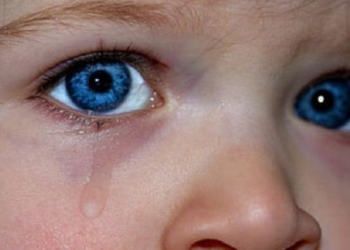Over the last few decades, the quality and volume of human male sperm has been on the decline across nearly all studied demographics. Though there is variance within socioeconomic, religious, racial, and other factors, overall the health of sperm is in a downward trend.
Studies conducted the world over have pointed to the same sets of lifestyle factors that are contributing to male fertility decline. Though the list is fairly broad, the best thing is that it's actionable. So while some of the contributing factors such as pollution are difficult to mitigate (without upending your life by moving to the country, for instance) most have the potential to be fixed.
Whether you're having difficulty conceiving right now, or you are planning to try and have children in the future, it's very possible that one or more of these lifestyle choices will impact you. Getting ahead of the curve could mean the difference between healthy conception and years of difficulty.
Recreational drugs
The use of cannabis has for a long time been tongue-in-cheek associated with low sperm count, but the research shows that it's definitely a cause-and-effect relationship. Men who casually use cannabis have sperm that are less active and less structurally sound, meaning they are not as effective at insemination.
Cocaine and other stimulants cause sperm cell death, resulting in lower concentrations of sperm. In addition, drugs like cocaine and methamphetamine actually cause structural damage and changes to the testicles themselves. Overall these damages and changes result in overall lower birth weights for children of recreational cocaine users.
Alcohol
Excessive alcohol use causes not only lower sperm volume but damages sperm motility (speed and ability to move). In addition, prolonged, excessive use of alcohol causes damage to sperm in general, resulting in lower implantation rates, higher miscarriage rates, and lower birth weight.
Even casual alcohol consumption can have an impact on fertility as it, on an adrenal and hormonal level, can impact male libido, arousal, and ability to perform. In addition, casual alcohol usage also decreases sperm count and semen volume.
Obesity
One of the single largest contributing factors to male infertility is obesity, and it does this in a handful of ways. Obesity causes decrease in semen volume, overall sperm health, and can directly cause erectile dysfunction, making it harder to conceive.
The sperm of men who had a BMI that falls into the overweight, obese, or morbidly obese categories has statistically higher chances of experiencing difficulty conceiving, lower birth weights, and higher chances of miscarriage during the first three months of pregnancy.
Depression
Depression appears to lower sperm count and morphology (sperm shape that affects the ability of sperm to penetrate and inseminate an egg). If a man's sperm is damaged in the morphological sense, it can have a profound impact on the health of the newborn baby should conception occur, and make it up to 30% more difficult to conceive to begin with.
Moreover, it’s further believed that any type of psychological stress can impact male fertility by suppressing testosterone and decreasing sperm motility. Work stress also has a profound impact on semen volume, ability to perform sexually, and sperm motility.
Cigarette smoking
Smoking cigarettes is directly correlated with a lot of negative effects, from heart disease to cancer, but it's also a leading cause of abnormal sperm morphology. This can lead to a handful of negative consequences, from difficulty conceiving to a range of birth defects.
Because of the sheer number of detrimental chemicals in tobacco smoke, it's not known the exact nature by which smoking causes infertility, but the effects on sperm and eventually children are profound. Smoking causes damage on the genetic level, affecting DNA and causing mutations that can be passed on to the father's children.
SSRIs
Drugs used to treat depression and anxiety have a moderate correlation to semen quality and overall sperm count, although the exact cause of these factors is not well understood. Some psychological drugs have no or very minimal effect on male fertility, however, SSRIs most certainly can and do.
Caffeine use
Caffeine by itself does not appear to have an impact on male fertility – in fact, when taken in the form of unsweetened coffee or tea, it has a beneficial effect on semen volume. That said, caffeine that comes in the form of sweetened soda, coffee, teas, or energy drinks has been shown to decrease fertility by inhibiting sperm motility and potentially damaging the actual DNA of sperm.
Diet
Not just obese men are at risk of infertility – diet plays a very important role in fertility for every man. Studies have found that men with a normal BMI but consume a heavily western diet – red meat, processed foods, refined grains, and lots of sugar – have less mobile sperm and less sperm in general.
Solving infertility in advance
Even if you're not trying to conceive right now, knowing that lifestyle choices and habits you have at this moment could potentially affect your fertility gives you a distinct advantage. By stopping unhealthy habits now, you're not only reaping health benefits but potentially improving your chances of being a father down the line.













